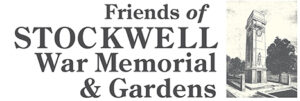H. Frost
Service no. 2/9508
Private, East Surrey Regiment, 7th Battalion
Died on 24 March 1916, aged 29
Remembered at Calais Southern Cemetery, France
This identification was made by Chris Burge, who writes:
Henry Frost was born at the end of 1886 in Lambeth, the second youngest of what would be eight known children of parents Thomas and Letitia (née Knight) Frost. Henry’s mother died in 1897 and the family home had broken up by 1901. Henry (Harry), then 14, worked as a ‘carman’ and lived with his older brother Joseph’s family in Stockwell.
The idea of six months initial training, followed by annual camp with bounty, was attractive enough for Henry Frost to join the newly formed ‘Special Reserve’ of the East Surrey Regiment on 16 January 1908. He was described as being 5ft 2ins (1.6m) tall, weighing 114lbs (51.5kg) and with brown eyes and dark brown hair. Part way through his initial training, Henry Frost decided his future lay in the Army and he transferred to a regular battalion of the East Surrey Regiment, becoming private 9508, Frost, on 25 April 1908. After two years in the UK, his battalion was posted overseas in 1910 and Henry Frost would not return to England until late in 1914 after the outbreak of the Great War.
After a short period of acclimatisation and re-fit the the 2/East Surreys, arrived in France on 19 January 1915. Henry Frost suffered a bad case of frostbite to both feet due to the squalid conditions in front line trenches. He was invalided back to England on 17 February 1915. He returned to duty on 8 April 1915, posted to the 3/East Surreys at Dover to regain fitness before returning to France on 14 December 1915, in time for another winter. Henry Frost did not rejoin his old battalion but was posted to the 7/East Surreys, part of Kitchener’s New Armies.
In March 1916, Henry Frost’s battalion manned trenches opposite the infamous Hohenzollern Redout, which had been the scene of bitter fighting in 1915. Between 7 and 18 March, the 7/East Surreys were subjected to intense enemy shelling, suffering 34 killed, 22 missing and 243 wounded. Another 39 were hospitalised with shell shock. Henry Frost was likely to have been wounded around this time and evacuated to one of the hospitals at Calais before he succumbed to his wounds on 24 March 1916.
At some stage Henry Frost had nominated as next of kin both his bother Joseph Frost living at 11 Moat Place, Stockwell, and his brother George who lived in Norwood. It was Joseph Frost who received Henry’s medals in 1920. In the absence of a sole legatee, the war gratuity was paid in equal shares to his six brothers and two married sisters.
The creation of the Stockwell War Memorial was their chance to the honour the name of a lost brother.
